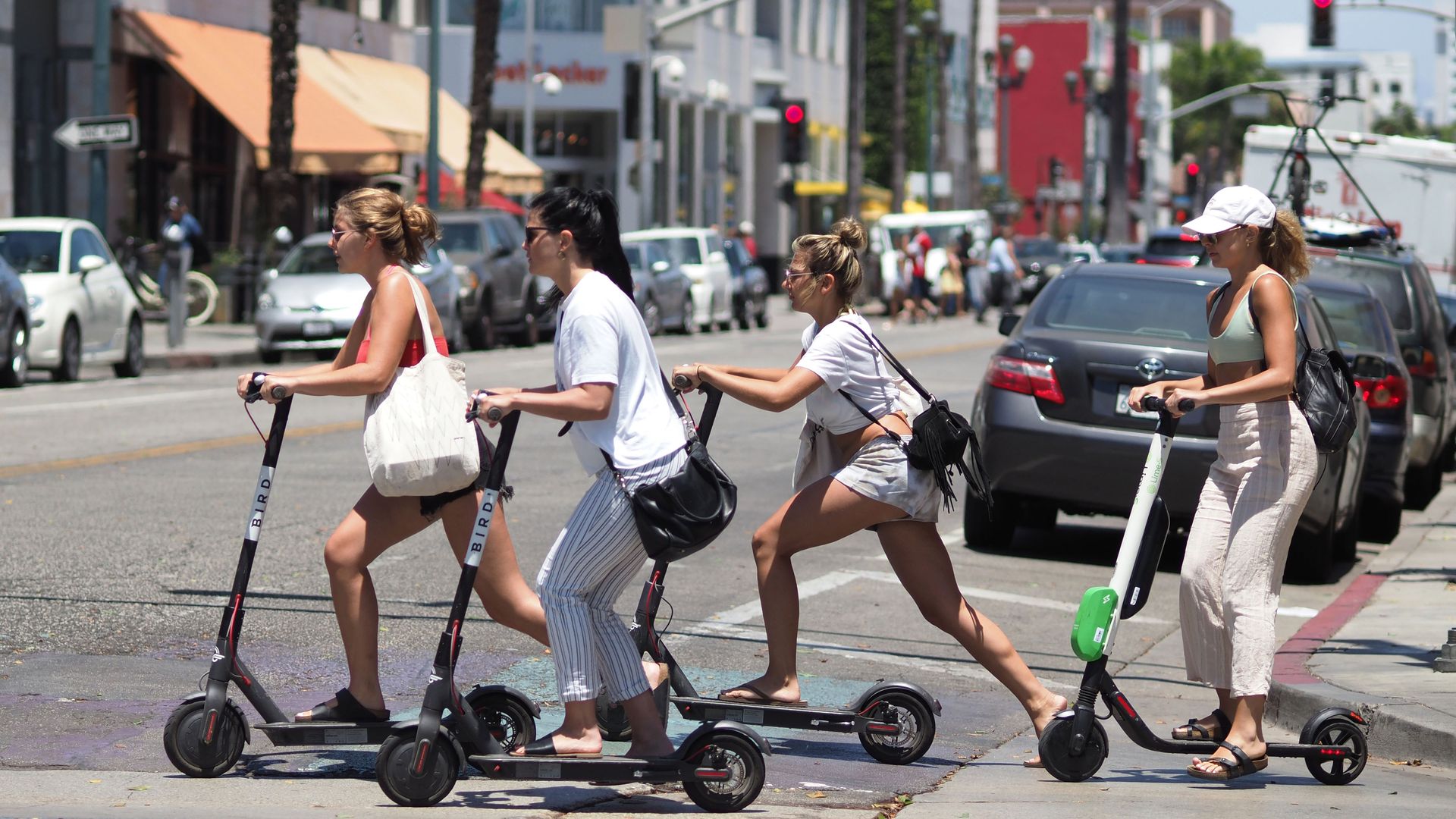The intensifying battle between cities and electric scooters
Add Axios as your preferred source to
see more of our stories on Google.

Photo: Robyn Beck/AFP/Getty Images
Cities are driving electric scooters out, either by explicitly ordering them off the streets or regulating them into extinction.
Why it matters: The rise of dockless electric bikes and scooters has brought on a slew of issues for cities, from crowded curbs to deadly accidents. But they offer a clean, convenient way to get around, and eliminating them entirely isn't the right solution, experts say.
Where it stands: In many cities, new laws, including complex data-sharing requirements and fees, are pushing scooters out. In others, they're altogether banned, CityLab's Laura Bliss writes.
- Washington, D.C., recently decided to oust four out of the eight scooter companies operating in the city, although it nearly doubled the total number of available scooters.
- Three scooter companies have left San Diego after being "strangled by city regulations," reports the San Diego Union-Tribune.
- Lyft has pulled its scooters out of a number of cities, including San Antonio, Nashville, Atlanta, Phoenix, Dallas and Columbus, per the San Antonio Express-News.
The big picture: Cities are struggling to manage the electric bikes and scooters because "we've developed governance that is pro-car," says Richard Florida, an urbanist at the University of Toronto. "This is a product of cities that are not prepared for the revolution in mobility."
What to watch: "The wrong approach to regulation can become an e-scooter-killer," David Zipper, a fellow at Harvard's Taubman Center for State and Local Government, writes in CityLab.
- One problem, Zipper notes, is that larger, denser cities are implementing the same regulations as smaller or more scattered towns.
- For example, a bigger city will have greater demand for scooters and can sustain multiple companies vying for the market. But it may only be worth it for a scooter company to operate in a smaller city if local officials keep competitors out.
Go deeper: The side effects of the transportation revolution
